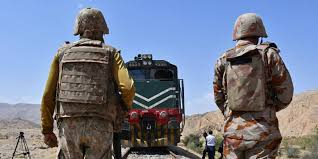Breaking the Chains of Terror in Balochistan

A new and deeply troubling form of terrorism has emerged in Balochistan. It threatens not only individuals, but also the very social fabric of the province. Extremist and banned organizations, particularly the Balochistan Liberation Army (BLA) and the Balochistan Liberation Front (BLF), have adopted the ruthless tactic of forcibly recruiting young people into their ranks. Those who dare to say no are being brutally murdered. It is a calculated and systematic campaign to terrorize an entire generation into submission, and it represents one of the gravest threats facing the people of Balochistan today.
This pattern of coercion and killing has claimed the lives of several young men whose only crime was to reject the call to join terrorist groups. Among them was Adnan Baloch, a resident of Tump, who was abducted by BLF militants on January 31, 2024. A few days later, his tortured body was dumped along Zubaida Jalal Road. Later, his brother Sharif Baloch was killed by terrorists while walking to the market with his sister. Both brothers had refused to align with extremist ideologies, and for that, they paid with their lives.
The tragic case of Aman Baloch further illustrates this horror. His mother publicly pleaded for mercy, asking if her son had committed any wrongdoing to at least be told what it was. But her appeals were met with silence, and her son was mercilessly killed. Her voice, filled with anguish, is the cry of countless Baloch mothers who fear for their sons’ safety amid growing militancy and violence. These incidents are not isolated; they are part of a deeply entrenched pattern aimed at silencing independent thought and robbing young people of their future.
Killing those who refuse to take up arms contradicts every principle of genuine liberation movements. No freedom movement, in its true essence, forces its own people into violence or punishes them for choosing peace. These acts of brutality are not acts of revolution, rather they are acts of oppression.
It is time for the Baloch people to recognize this grim reality and raise their voices against the systematic targeting of their youth. The narrative that these banned groups are fighting for the rights of the Baloch has long been shattered by their own actions. They have turned into oppressors of the very people they claim to represent. In truth, they operate under foreign agendas, using violence to destabilize the region and prevent any form of progress. A prosperous, educated, and united Balochistan is a threat to their cause, and so they continue to silence those who dare to dream of a better life.
Young people who seek education, who strive to provide for their families, or who simply wish to live in peace, are being treated as enemies. The assassinations of Adnan, Sharif, Aman, and many others are not just murders, rather they are attempts to kill hope, ambition, and the spirit of a better future. By eliminating those who reject violence, these groups are committing a form of generational cleansing that should shock the conscience of every human being.
But the responsibility to resist this wave of terror doesn’t lie with the government alone. Every conscious Baloch citizen must stand against this tyranny. Parents must protect their sons from the manipulation and intimidation of these terrorist factions. Community leaders, scholars, civil society members, and the media must come together to expose the true nature of these so-called “freedom fighters” who are, in reality, little more than death squads. The youth must be empowered with education, economic opportunities, and the confidence to reject extremism.
At the same time, the state must ensure the protection of those who resist recruitment, offer support to families who have lost loved ones to terrorism, and strengthen counter-terrorism efforts in the region. The establishment of secure pathways for youth to pursue education and employment is critical in undermining the influence of terrorist groups. Legal and psychological support should be provided to those who have survived abduction and coercion. Moreover, there should be no space for ambiguity: the murder of a young man who refused to join a terror group should be condemned with the same moral clarity as any other act of terrorism.
The voices of grieving mothers, the tears of orphaned sisters, and the silence left behind by slain sons all demand justice. If we remain silent today, we become complicit in the erasure of an entire generation. The need of the hour is unity, resolve, and an unflinching stand against those who seek to plunge Balochistan into darkness. It’s time to break the silence and end the terror for the future of Balochistan and for the soul of Pakistan.
About the author:
The author is an independent researcher based in Islamabad, Pakistan.











